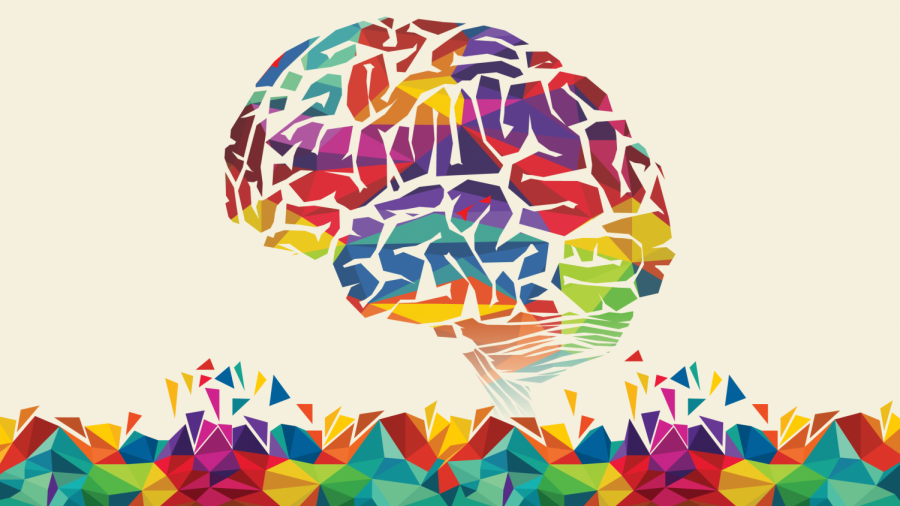Our Society Has the Wrong Idea About Intelligence
What type of person do you think of when you imagine an intelligent person? Do you think of someone who is an aerospace engineer who makes over $100,000 each year? Or, do you think of a talented violinist who barely has enough money to pay rent? Most would probably say that the engineer is the more intelligent of the two.
But how accurate is this stereotype, really? As a society we have come to perceive those who have harder sounding jobs as more intelligent. We perceive those who have knowledge in things like math and science to be more well-informed about how to succeed in life, than someone who is in the arts and is struggling to get by. But, how exactly are we supposed to determine whose job is the hardest, and therefore define the people who have this profession as the most intelligent, if we have never been employed in either of the compared professions before?
Dictionary.com defines intelligence as: “the capacity for learning, reasoning, understanding, and similar forms of mental activity.” In other words, it is one’s ability to grasp different things; the more nuances you can pick up on, the more intelligent you are. The people in the engineering stereotype can retain considerable amounts of information and apply them to create solutions to problems, which exhibits that they possess high levels of intelligence. However, they are not the only ones whose jobs requires this; every job requires some basic level of understanding to problem-solve – including the arts. Artists must think up beautiful ideas to paint just like engineers must think up practical new designs to increase performance. Musicians practice creative melodic runs and perfect them similar to how mathematicians must practice math problems until they can complete them with ease. Writers must formulate sentence structure to make their literary work cohesive and flow easily as often as scientists develop hypotheses and make sure their experiments run smoothly. Both fields require creativity and a considerable amount of skill. So, why do we still consider people with proficiency in mathematics and science to be more intelligent than those who have an artistic proficiency?
Compare a materials engineer to a clinical psychologist. Both are within the field of science and seem like they would require a very impressive resume to acquire these jobs. These professions have highly comfortable average salaries- for a materials engineer it is $73,498 a year, and for a clinical psychologist it is $76,028, according to PayScale.com. Now, compare the psychologist to the average freelance photographer who makes $25.22 each hour per booked gig. Pretty hard, right? A photographer possesses a different view of the world than a psychologist does and lives a completely different lifestyle. They target their audiences’ raw emotions and the abstract to make their type of impact on the world instead of the logic that science uses. The only similarities between the two areas is that they require certain skills to be successful. So, why does our society constantly compare two completely different subjects to determine how smart the people are who participate in them?
First, we must realize that mankind is obsessed with comparing things. We have been determining the intelligence of animals that are completely different than us by comparing if they can complete the same tasks we can, because we of course feel obligated to establish that we are the most advanced species. The ones who can complete them are more intelligent. This method is how we determined crows’ high intelligence. One study led by Sarah Jelbert at the University of Cambridge observed that crows had visually remembered how older crows had built tools in the past and are able to mimic and create their own tools, just like we can. Another study also observed elephants to be highly intelligent as they can work together and understand the social implications of fairness, just like we can. The study was done by researchers from Emory University where two elephants were presented with a task to pull two ropes connected to a box with food for them. Instead of one elephant pulling at a time, and it taking considerably longer for the food to reach them, they decided to pull both ropes in unison which increased the efficiency of getting food and eating it. We consider these animals to be smart because they can collaborate and use their resources to get things done. However, no one considers how intelligent mankind is by our social cooperation, especially when that is a big part of how our society and workplaces function. Instead, we measure our own species’ intelligence based on more materialistic things.
We base intelligence on people’s socioeconomic status that their job provides them with, whether they have attended a prestigious university or not, or if they had done well in school. But, most prevalently we determine people’s intelligence based on the preconceived notions we have about certain professions. We praise things like math and science, but frown upon things like art, music, and language composition for no reason other than the stigma behind them. As a result, we consider those in math and science to be far more intelligent than those in the arts. Sure, if you are a scientist you have had to go through very challenging courses that most people can’t fully grasp. But, people in the arts also go to school and learn other skills that most people can’t grasp. They each have an equal amount of intelligence, but just in different things.
We have stopped encouraging other subjects that still require creativity and problem solving just because they seem less important and are seen as more unstable professions. We do not take peoples’ passions and the natural skills needed into account when we consider who is the most intelligent type of person, especially since it is impossible to generalize these collective groups of different people from very different circumstances. Overall, our society has the wrong idea about intelligence.





